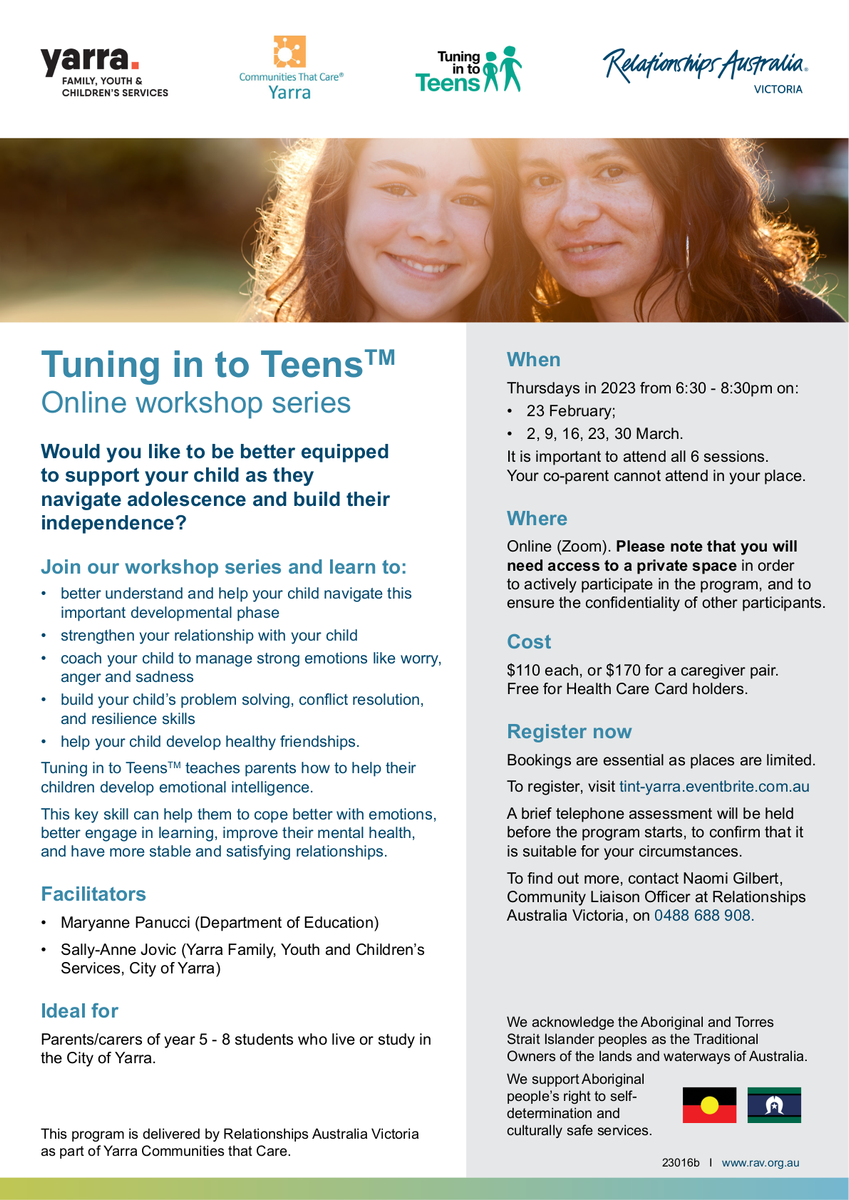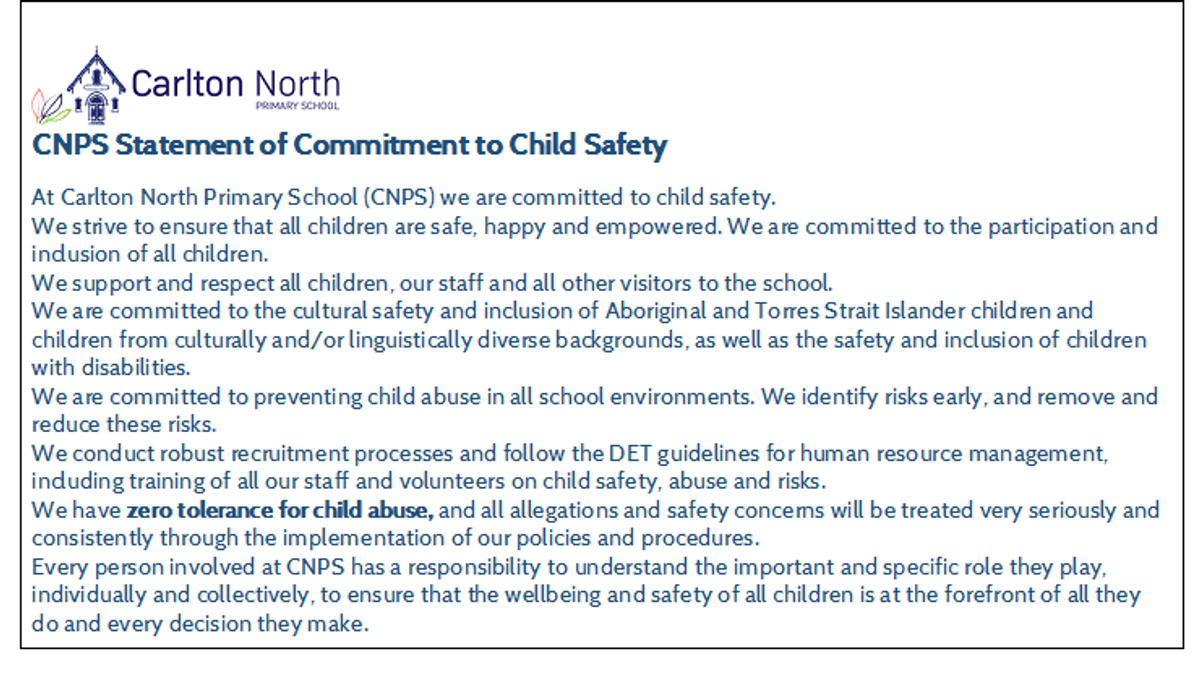Carlton North Wellbeing

Manage everyday challenges with positive parenting strategies
Childhood is made up of many little moments. Difficult moments, magic moments, and more. Because we all want what’s best for our child – now, and in the future – it’s good to be able to make the most of every moment, whether it’s savouring the great ones or coping confidently with the tricky ones.
- Little kids can have BIG emotions. And that can mean tantrums, bedtime battles, aggressive behaviour. Parents and carers need positive solutions that really work, for all kinds of situations.
- When children get better at things like routines, sharing, and getting along with others, family life gets a lot better.
- Small problems get solved before they become big ones.
- Kids gain valuable life skills like problem-solving to help them now, and in the future.
- Children can learn to talk about strong emotions and handle them in healthy ways.
Why sleep is important for children aged 5-11 years
When your child sleeps well, your child will be settled, happy and ready for school the next day. That’s because good-quality sleep helps your child concentrate, remember things, manage emotions and behave well. This all helps your child learn well.
Getting enough sleep is also important for your child’s health. That’s because it strengthens your child’s immune system and reduces the risk of infection and illness.
Sleep: what to expect at 5-11 years
At 5-11 years, children need 9-11 hours sleep a night. For example, if your child wakes for school at 7 am and needs approximately 10 hours sleep per night, your child should be in bed before 9 pm.
Some children fall deeply asleep very quickly when they go to bed. Others sleep lightly, fidgeting and muttering for up to 20 minutes, before getting into deep sleep.
Children have different kinds of sleep during the night. The first few hours of sleep are usually the deepest. Most dreams happen in the second half of the night.
Puberty affects children’s sleep. Sleep for children around 12 years and older might mean going to bed and waking up later, but they still need plenty of good-quality sleep.
How to help children sleep well
A good night’s sleep is about getting to sleep, staying asleep and getting enough good-quality sleep. Here are ideas that can help your child get the sleep they need.
Bedtime routineA bedtime routine is very important at this age. It helps your child wind down from the day.
For example, a child who normally goes to bed at 7.30 might have a bedtime routine that looks like this:
- 6.45 pm: put on pyjamas, brush teeth, go to the toilet.
- 7.15 pm: quiet time in the bedroom with a book and a bedtime story or quiet chat.
- 7.30 pm: goodnight and lights out.
Relaxing before bedAfter a big day at school, your child might still be thinking about the day’s events and worries. If your child’s mind is still busy at bedtime, it can cause a restless night or bad dreams.
You can help your child relax for sleep and sleep better by making time for calm, quiet activities in your child’s bedtime routine. For example, you could play gentle music, read a story together or encourage your child to have a bath before bed.
Good daytime and night-time habits for better sleepThese habits might help your child sleep better:
- Keep regular sleep and wake times, even on the weekend.
- Turn computers, tablets and TV off an hour before bedtime.
- Have a quiet and dimly lit place to sleep.
- Get plenty of natural light during the day, especially in the morning.
- Avoid caffeine in tea, coffee, sports drinks and chocolate, especially in the late afternoon and evening.
You can manage some sleep problems in children with good sleep habits. It’s a good idea to talk with your GP if you’ve been encouraging your child to try good sleep habits and this doesn’t seem to be helping. Sleep medicines usually aren’t the solution to children’s sleep problems.




